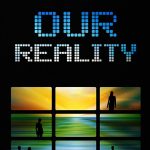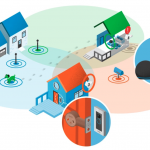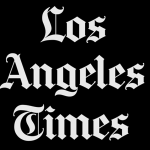June 26, 2021
Co-Director Tadayoshi Kohno Releases Novella “Our Reality”
UW Allen School News

In this Q & A, TPL Co-Director Tadayoshi Kohno discusses his new science fiction novella Our Reality. Our Reality is set in 2034 and is named for the fictional mixed-reality technology that allows one to go to class, meet up with friends, and get a workout in, all without leaving your bedroom. Kohno explains how […]
MoreJune 8, 2021
Surveillance and Privacy Concerns with Amazon’s new neighborhood wireless network “Sidewalk”
GeekWire

Amazon introduced Sidewalk, a neighborhood wireless network, to boost connection for devices within individual homes. Ryan Calo highlighted that it could possibly extend home surveillance techniques, increase costs, and decrease speed. Amazon has addressed some concerns by utilizing encryption and more user choice. Geekwire For further reading, please see: Amazon Indoor Ring Drone, Privacy October […]
MoreJune 4, 2021
Co-Director Testifies on Digital Market Manipulation at FTC Workshop
Technology Academics Policy

For a long time, companies have been attuned to the idea that environments can be manipulated to change a customer’s behavior and make them more engaged with a product. This ability to manipulate the market has only been facilitated in the online era, with data and online cookies providing companies with a hidden window to […]
MoreApril 30, 2021
TPL PhD Student Miranda Wei recognized by National Science Foundation
UW Allen School News

Miranda Wei, a second year Ph.D. student in the Paul G. Allen School of Computer Science & Engineering, was recognized with an honorable mention for her work with professor and TPL Co-Director Tadayoshi Kohno and professor and TPL Faculty Associate Franziska Roesner. Wei’s research focuses on usability of computer security and privacy (S&P).
ArticleApril 28, 2021
Calo Takes Note of FTC Warning on Biased AI
The Conversation

In an opinion piece, Co-Director Calo analyzes a FTC blog post which stated that FTC may hold companies accountable for biased AI if companies do not do so themselves, and what the post likely signals. As a researcher who studies law and technology, and a longtime observer of the FTC, the statement caught Calo’s attention. […]
MoreMarch 26, 2021
TPL Students Savannah McKinnon and Rian Wanstreet on “Meating the COVID Moment”
UW Law

TPL Students Savannah McKinnon and Rian Wanstreet have recently brought to light the issues in the processing industry with regards to government oversight and technology which call for a changes to laws and policy. As these issues have been exacerbated by the COVID 19 pandemic, the authors presented at the Yale Big Ag and Antitrust […]
ArticleMarch 23, 2021
Questionable Utility of COVID-19 Contact Tracing Apps
Seattle Times

“I have yet to see any convincing evidence that they’re worth it,” said Ryan Calo, a University of Washington law professor who has written critically about the apps for months and testified in front of a congressional committee last April, in an interview with Stateline. “A lot of money, a lot of attention, a lot […]
MoreMarch 11, 2021
TPL Associate Faculty and Graduate Student Look In To How Large Computer Language Models Carry Environmental and Social Risks
UW News

TPL Associate Faculty, Emily Bender, a professor in Linguistics, and TPL Graduate Student Angelina McMillan-Major, along with others, including Timnit Gebru, look in the costs, both environmental and social, of trying to teach machines the gift of language.
ArticleJanuary 16, 2021
Calo co-written Op-Ed on Social Media, Misinformation, Elections, and Bans
Los Angeles Times

Op-Ed looks at distinguishing the difference between attributing user speech to a platform, which is forbidden, and failure to have reasonable community safety. Also discusses regulating possibly harmful algorithms and how design choices that can amplify negative rhetoric and possible future harm. Los Angeles Times For further reading on Social Media, Misinformation, Elections, and Bans, […]
MoreDecember 24, 2020
First-Generation Tech Policy Lab Student Advances Issues at Intersection of Law and Technology
UW Law

Current law student, and former Tech Policy Lab student, Nicole Buckley has had a number of opportunities to be a part of ground-breaking research during her time at UW Law, the first of which was serving a Hazelton Fellow with the Tech Policy Lab. Buckley has also been able to view the intersections of technology […]
Article